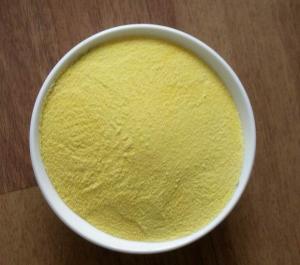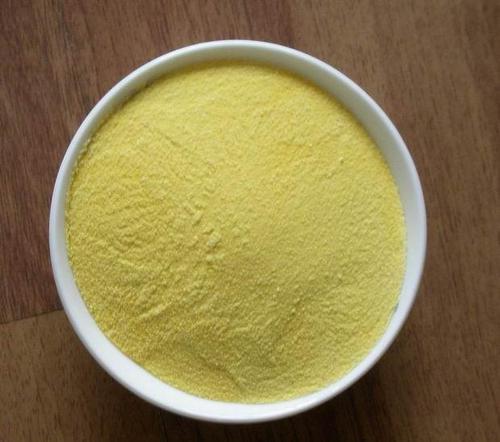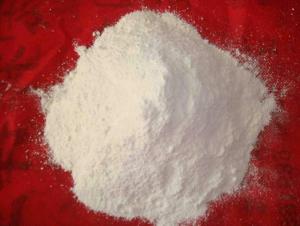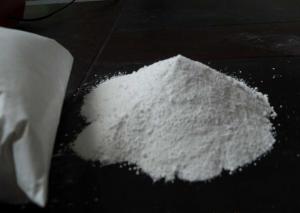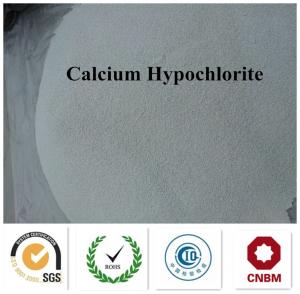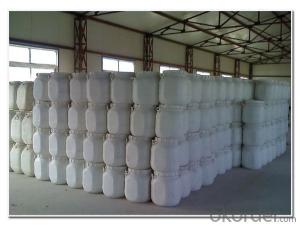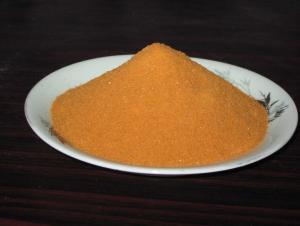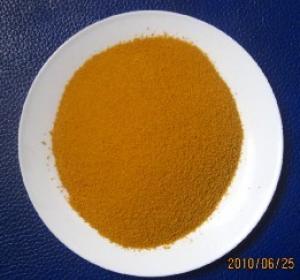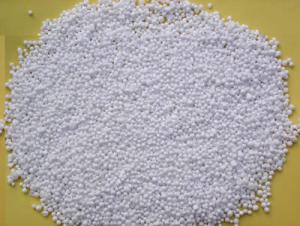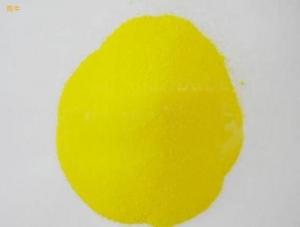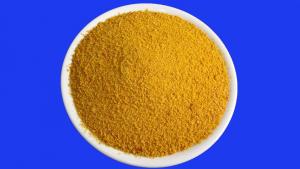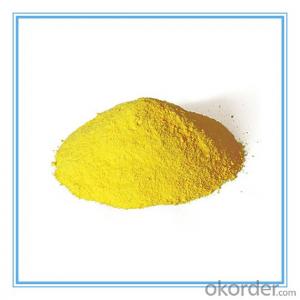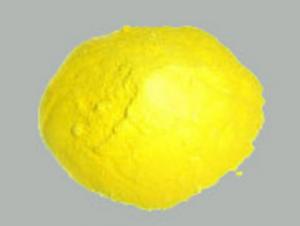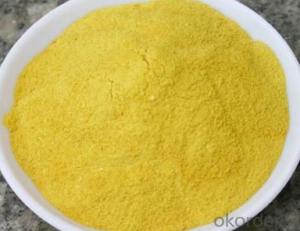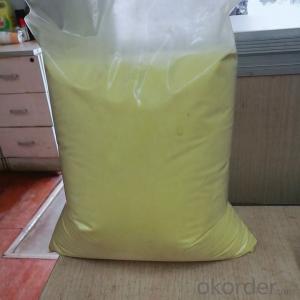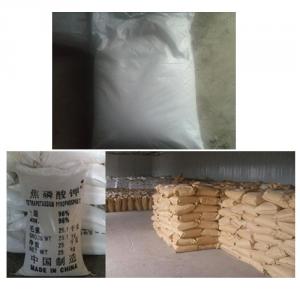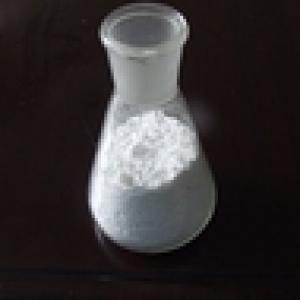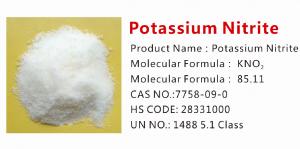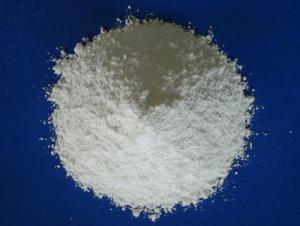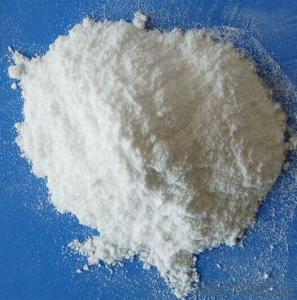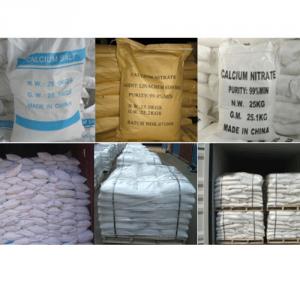drinking water grade Poly aluminium Chloride slight yellow color
- Loading Port:
- Tianjin
- Payment Terms:
- TT OR LC
- Min Order Qty:
- -
- Supply Capability:
- 6000 m.t./month
OKorder Service Pledge
OKorder Financial Service
You Might Also Like
Polyaluminium chloride PAC 30%min
1. Features of polyaluminium chloride
a. highest grade raw materials
b. light yellow powder
c. Low heavy metal
d. High AL2O3, 30% min
2. Specification of polyaluminium chloride
Industrial water grade:
Properties: sandy beige fine powder use spray drying technology.
Usages: The product is widely used for industrial water and wastewater treatment, such as those containing radioactive substances, lead (Pb + +) chromium (Cr + + +) highly toxic heavy metals and fluoride (F) sewage. In addition, also use in precision casting, paper, leather, etc.
Item | Specification guaranteed |
AL2O3 % Min | 30 |
Basicity 8% | 50-90 |
Max. water insoluble % | 0.05 |
PH value(1% content in water) | 3.5-5.0 |
Drinkable water treatment:
Properties: Lemon yellow fine powder use spray drying technology.
Usages:The product is widely used for drinking water treatment, also use in precision casting, paper, leather, etc.
Item | Specification guaranteed |
AL2O3 % Min | 30 |
Basicity % | 70-85 |
Max. water insoluble % | 0.1 |
PH value | 3.5-5.0 |
Fe, %, ≤ | 0.2 |
As, %, ≤ | 0.0002 |
Mn, %, ≤ | 0.0075 |
Cr 6+ %, ≤ | 0.0005 |
Hg %, ≤ | 0.00001 |
Pb %, ≤ | 0.001 |
Cd %, ≤ | 0.0002 |
Milk white PAC
Properties: White fine powder use spray drying technology.
Usages: Mainly used for portable water, urban sewage purification; in food processing industry, it's mainly used as sugar decolorization clarifying agent; as sizing auxiliary in paper mills; For cloth anti-creasing
Item | Specification guaranteed |
AL2O3 % Min | 30 |
Basicity % | 40-60 |
Max. water insoluble % | 0.01 |
PH value | 3.5-5.0 |
Fe, %, ≤ | 0.2 |
As, %, ≤ | 0.0002 |
Mn, %, ≤ | 0.0075 |
Cr 6+ %, ≤ | 0.0005 |
Hg %, ≤ | 0.00001 |
Pb %, ≤ | 0.001 |
Cd %, ≤ | 0.0002 |
3. Packing of polyaluminium chloride
20kg / 25kg / 900kg / 1000kg Plastic Bag
- Q: What is the inorganic salt
- The main sources of various inorganic salts and the lack of the main performance (1) sodium sodium is the main ingredient of salt.China's nutrition society recommended adults over 18 years of age sodium intake of 2.2 grams per day, the elderly should take light food Sodium is commonly found in a variety of foods. The main sources of sodium are sodium, soy sauce, pickled foods, smoked foods, salty foods, etc. (2 Calcium is an important part of bone. Disease, osteoporosis, etc .. China Nutrition Society recommended adults aged 18-50 adult calcium intake of 800 mg per day; 50 years of age in the elderly 1000 mg.General calcium-rich foods are milk, yogurt, Oatmeal, sea cucumber, shrimp, wheat, soybean meal, soy products, lily, etc. (3) magnesium is the necessary elements to maintain the structure and function of bone cells.Magnesium deficiency can lead to nervous tension, emotional instability, muscle tremor and so on. (4) Phosphorus is an important part of the composition of bones and teeth. (4) Phosphorus is an important component of bone and teeth. (4) Phosphorus is an important component of bone and teeth. Severe phosphorus deficiency can lead to anorexia, anemia, etc. China Nutrition Society recommended adults over 18 years of age the appropriate intake of phosphorus is 700 mg. Common phosphorus-containing foods are lean meat, eggs, milk, animal offal, kelp, Nuts, coarse grains. (5) Iron is the most content of trace elements in the human body, iron and the human body's life and its health are closely related to iron deficiency will lead to iron deficiency anemia, immunity decreased. China Nutrition Society recommended 50 years old More than men's or women's iron daily intake of 715 mg. Common iron-rich foods are animal liver, kidney, caviar, lean meat, potatoes, wheat bran.
- Q: After running the training is best to drink what drinks add inorganic salt
- C100 ah
- Q: What is the composition of inorganic salts?
- Inorganic salts are inorganic compounds in the salt, formerly known as minerals
- Q: What are the important physiological effects of inorganic salts in cells
- Composition of cells in some important compounds,
- Q: How to isolate the effects of inorganic salts on enzyme solubility
- The effect of inorganic salts on the solubility of the enzyme was studied. The inorganic raw materials were pretreated with inorganic salts to separate the solid-liquid phase, and some of the lignin and hemicellulose were dissolved, and the sulfuric acid and the inorganic salt were added to the cotton Treatment, thereby improving the enzymatic hydrolysis efficiency. Using different amounts of sulfuric acid
- Q: Can inorganic salts act as stabilizers for emulsified asphalt?
- can. The general use of calcium chloride and ammonium chloride more stable emulsifier
- Q: An inorganic salt is dissolved in water and yields a solution that has a color. Make a statement about the type of element the substance contains that casuses the color.Thanks!
- Many inorganic salts form colored solutions . pper ( II) sulfate ( Blue ) nickel (II) acetate = green, mangaanse ( II) chloride = pink, iron(III) chloride = yellow, potassium dichromate, orange and so many more Can you be more specific ?
- Q: Does the plant roots absorb inorganic salt ions must be active
- Plants absorb inorganic salts and do not necessarily absorb water. Plants absorb moisture and absorb inorganic salts are two relatively independent processes. Plants absorb moisture through the infiltration of root cells to absorb water, the process is essentially free of water diffusion process, neither the carrier nor the need for energy; and plant absorption of inorganic salts is carried out by means of active transport, This process requires the carrier and consumes the energy generated by cell metabolism. Of course, plant water absorption and absorption of inorganic salts are a certain association, inorganic salts to be dissolved in water to be absorbed, and inorganic salt ions in the transport of plants can not be separated from water.
- Q: How to extract inorganic salts in soil?
- Find a piece of mud, with water, filter out the permeate, filter with filter paper. The liquid was placed in a beaker and dried to obtain white crystals
- Q: I am 18 years old, test the body of inorganic salt content of 3KG, people say that low. What is the value of this use? How can improve it?
- The percentage of inorganic salts in human mass is 4 to 5%
Send your message to us
drinking water grade Poly aluminium Chloride slight yellow color
- Loading Port:
- Tianjin
- Payment Terms:
- TT OR LC
- Min Order Qty:
- -
- Supply Capability:
- 6000 m.t./month
OKorder Service Pledge
OKorder Financial Service
Similar products
Hot products
Hot Searches
